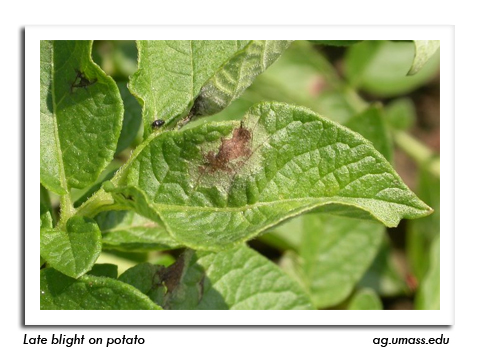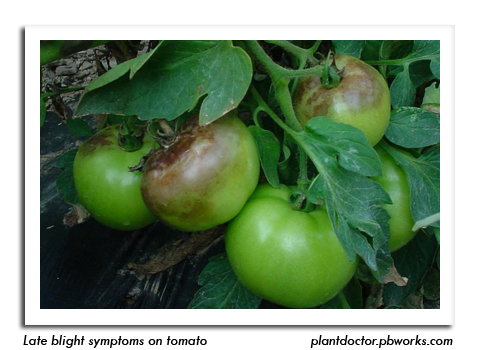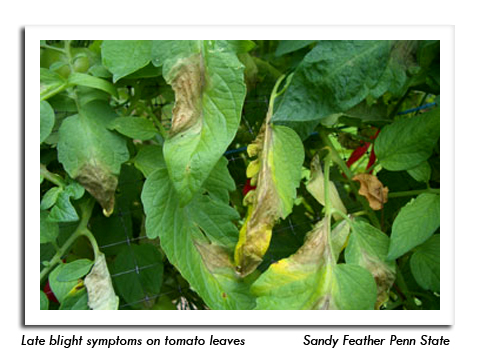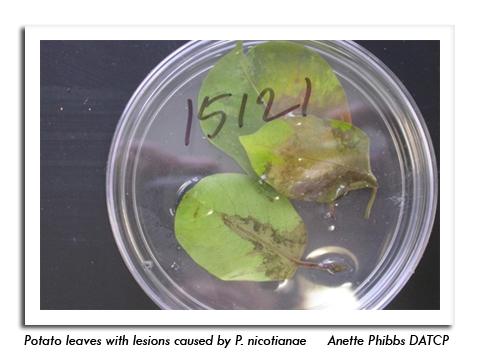
 |
|
|
Vegetables
Volume 61 Number 19 Date 12/08/2016 LATE BLIGHT - The state's first case of potato late blight in 2016 was confirmed by the UW on a Polk County farm on August 15, much later than the June 23 first detection in 2015. Two additional cases were found in August: one in Dane County on August 18 (tomato) and another at a Polk County farm on August 22 (tomato). No new finds were reported until September 24 when a tomato plant from Juneau County tested positive. Late blight was subsequently confirmed in Crawford County on October 3 (potato and tomato). This disease was relatively rare in 2016 and did not develop in the state's main potato growing areas. Only four counties had confirmed reports this year, far fewer than the 23 counties with documented cases in 2015. PHYTOPHTHORA NICOTIANAE - The questionable "late blight" reported by UW from Adams County in July was determined by the DATCP Plant Industry Lab to be caused by Phytophthora nicotianae and not the late blight pathogen Phytophthora infestans. Potatoes infected with P. nicotianae may exhibit foliar symptoms similar to late blight, but this Phytophthora species does not have the same devastating effect on production. POTATO BLACKLEG - The Plant Industry Lab, in collaboration with UW Seed Potato Certification Program and UW laboratories, is providing testing for potato blackleg, or Dickeya blackleg, to Wisconsin seed potato growers. This service is in response to grower demand for testing following the 2015 outbreak of Dickeya dianthicola in the eastern U.S. and in the Midwest. Dickeya is an aggressive pathogen with a potential to cause 100% crop loss. Testing is ongoing and will continue until all seed lots have been screened by spring of 2017. -- Anette Phibbs, DATCP Plant Pathologist 



|
|
|